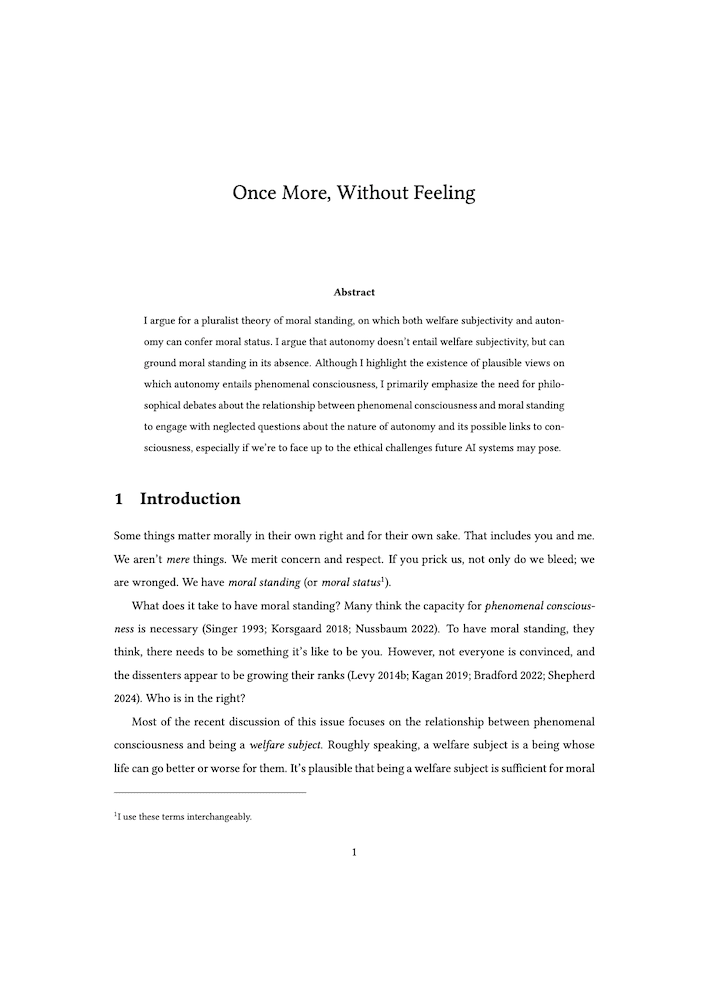Once More, Without Feeling
Andreas Mogensen (Global Priorities Institute, University of Oxford)
GPI Working Paper No. 2-2025
I argue for a pluralist theory of moral standing, on which both welfare subjectivity and autonomy can confer moral status. I argue that autonomy doesn’t entail welfare subjectivity, but can ground moral standing in its absence. Although I highlight the existence of plausible views on which autonomy entails phenomenal consciousness, I primarily emphasize the need for philosophical debates about the relationship between phenomenal consciousness and moral standing to engage with neglected questions about the nature of autonomy and its possible links to consciousness, especially if we’re to face up to the ethical challenges future AI systems may pose.
Other working papers
Longtermist political philosophy: An agenda for future research – Jacob Barrett (Global Priorities Institute, University of Oxford) and Andreas T. Schmidt (University of Groningen)
We set out longtermist political philosophy as a research field. First, we argue that the standard case for longtermism is more robust when applied to institutions than to individual action. This motivates “institutional longtermism”: when building or shaping institutions, positively affecting the value of the long-term future is a key moral priority. Second, we briefly distinguish approaches to pursuing longtermist institutional reform along two dimensions: such approaches may be more targeted or more broad, and more urgent or more patient.
Are we living at the hinge of history? – William MacAskill (Global Priorities Institute, Oxford University)
In the final pages of On What Matters, Volume II, Derek Parfit comments: ‘We live during the hinge of history… If we act wisely in the next few centuries, humanity will survive its most dangerous and decisive period… What now matters most is that we avoid ending human history.’ This passage echoes Parfit’s comment, in Reasons and Persons, that ‘the next few centuries will be the most important in human history’. …
Misjudgment Exacerbates Collective Action Problems – Joshua Lewis (New York University) et al.
In collective action problems, suboptimal collective outcomes arise from each individual optimizing their own wellbeing. Past work assumes individuals do this because they care more about themselves than others. Yet, other factors could also contribute. We examine the role of empirical beliefs. Our results suggest people underestimate individual impact on collective problems. When collective action seems worthwhile, individual action often does not, even if the expected ratio of costs to benefits is the same. …

